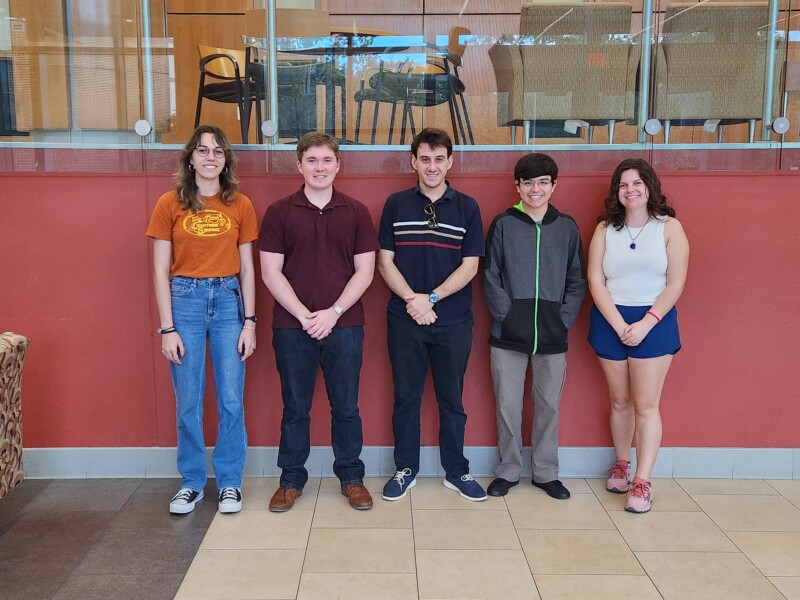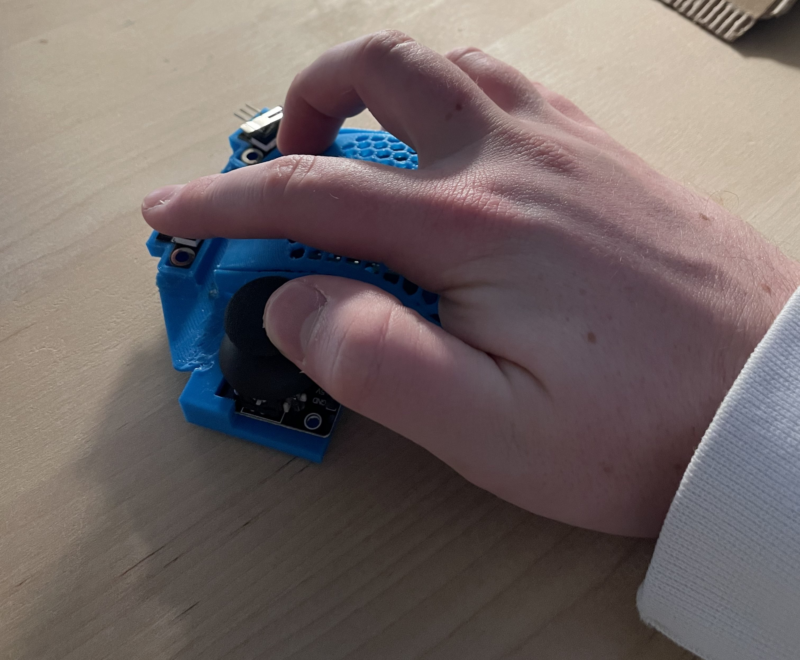Thanks to their “Adaptive Mouse” project – a finalist in EPICS in IEEE’s “Access and Abilities Competition” — University of Florida students hope to enable those with limb differences to enjoy the world of gaming
Recent surveys estimate that over three billion people around the world participate in video gaming.
Statistics also reveal that tens of millions of people globally are either missing or suffer from deformities of one or both of their hands or arms.
The intersection of these two populations is currently the focus of a team of students at the University of Florida at Gainesville, who, through their “Adaptive Mouse” project — a finalist in EPICS in IEEE’s “Access and Abilities Competition” – aim to help individuals with hand or arm deficiencies to enjoy the exciting and rapidly-growing world of gaming.
The project was the brainchild of John McCauley, a junior within the dual bachelor’s and master’s degree program in Biomedical Engineering at the University of Florida at Gainesville and a longtime gaming enthusiast.
“Gaming is a personal passion of mine, but I’ve often thought that if I didn’t have one or both of my hands or all of the fingers needed to play, gaming on a PC would be extremely inaccessible and I wouldn’t be able to play certain games at a competitive level,” McCauley shared. “Some gamers with arm or hand deficiencies play with their feet, nose, mouth, or elbows, or else they use devices not intended for that purpose and are forced to adapt. I realized that if there was a dedicated device designed for individuals with a deformity or limb difference, they’d be able to play and experience the joy of gaming.”
McCauley soon set out to be the change he sought.
“As a freshman in Fall 2021, I joined our Biomedical Engineering Department’s ‘General Relief in Prosthetics’ (GRiP) Club to learn more about applying engineering skill sets to real-world problems, especially those related to prosthetics,” he said. Interested in starting his own team, “I pitched my project idea for an ‘Adaptive Mouse’ to the club leaders, who liked it and made me a Team Captain in 2022.”
Throughout his sophomore year, McCauley met with fellow student team members weekly to discuss the project, order parts, and fabricate prototypes. Upon the recommendation of a former student and current IEEE member in his department, “I proposed the project to EPICS in IEEE’s “Access and Abilities Competition” and was excited to learn that we’d been green-lighted for a grant in Spring 2023,” he said.
Reducing a Barrier to Entry
“Our ‘Adaptive Mouse’ is a mouse and keyboard all in the same device that can be used with one hand,” McCauley said of the off-the-shelf gaming mouse that he and fellow team members are overhauling to meet the needs of their target population. “It provides all of the functionality of the eight fingers on both hands needed to play (as you don’t use the ring or pinky fingers on the right hand when gaming) and allows someone with a limb difference to play at a competitive level and stand on equal ground with others.”
According to McCauley, the project’s 10-member team — which includes himself, fellow Biomechanical Engineering students

Members of the Adaptive Mouse team include (from left to right) Olivia Tucker, Team Captain John McCauley, George Rassam, Hunter Vu, and Kennedy Moes
George Rassam, Kennedy Moes, and Hunter Vu, Mechanical Engineering students Max Dearmin and Olivia Tucker, Biological Engineering students Jack Gardner and Tessa Burnett, and past members Elijah Bloyer (Chemical Engineering) and Paul McKenzie (Biomechanical Engineering) — has run into its share of obstacles along the way. Among them, powering their mouse beyond the use of batteries, which can be difficult for people missing an arm, hand, or fingers to change out, has proven difficult. “We looked into ways of adding a rechargeable battery to the original device we’d chosen and ended up switching it out for another mouse, though there are still some complications we’re working through,” McCauley said. “In addition, the fused deposition modeling (FDM) process that we’re using to 3D-print a casing for the new mouse is complex and time-consuming, though fortunately the funding we received through IEEE enabled us to purchase a dedicated printer for this project.”
Currently halfway through their year-long project, which concludes in Spring 2024, “our goal is to make five of our Adaptive Mouse devices and deliver them to five recipients involved with Hands to Love, a Florida-based organization that supports children with upper limb differences, at their annual event in March 2024,” McCauley said. “Our GRiP Club further supports Hands to Love by maintaining past innovations we’ve delivered, soliciting feedback on them from users, and redesigning them as necessary so that we can continually improve what we offer.”
“I’ve always been sensitive to what it would be like to be limb-deficient and have to deal with the day-to-day struggles associated with a physical disability,” McCauley noted. “Combining what I’ve been learning in the classroom with funding from IEEE and my own personal passion for gaming, I’m hoping to make a difference and help others enjoy a hobby that I love. Given that the gaming industry is only growing in popularity and more and more people of all ages are playing, our device will hopefully promote greater inclusivity by reducing a barrier to entry.”

A demo showing the operation of the Adaptive Mouse with one hand.
Based on his positive experience with the project, “I highly recommend EPICS in IEEE’s ‘Access and Abilities Competition’ to others because it’s a great opportunity that helps with funding, mentorship, and direction,” McCauley concluded. “We’re truly grateful for this initiative, which can help bring novel ideas and solutions to fruition and enhance accessibility worldwide.”
This project is part of the EPICS in IEEE Access and Abilities Competition and the funding for this project was made possible by the Jon C. Taenzer Memorial Fund established by the IEEE Foundation in 2019 with a generous bequest from the Estate of Mr. Taenzer, an IEEE Life Senior Member. For more information on EPICS in IEEE’s “Access and Abilities Competition”, visit https://epics.ieee.org/get-involved/access-and-abilities-competition/.

Great initiative. Now current generation need this. All the best.